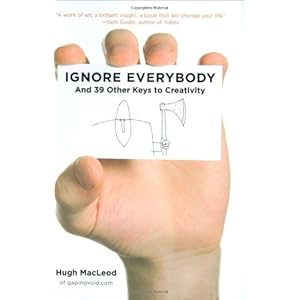Advice For The Diversifying Physician
 Here are 5 tips I wish someone had told me when I was exploring options to diversify and differentiate my career as a physician.
Here are 5 tips I wish someone had told me when I was exploring options to diversify and differentiate my career as a physician.
Every once in a while, I look back to see what lies ahead.
The year 2010 officially marked 10 years for me from when I first made the critical decision to diversify my career beyond clinical medicine (note that I purposely did not say ‘leave medicine’ because, in my mind, I will always be a doctor first as demonstrated by my lifework philosophies and commitment to health improvement). Since then, it has been quite a journey – navigating through start-ups, public health policy, communications, IT, public relations, education, advertising, marketing, strategy consulting, investing, executive management and more - with scars and bruises that anyone would be proud to share.
Although 10 years may not seem like such a long period of time, in healthcare, the clock seems to run at its own unique pace. In those days, the perception of physicians exploring diversified careers was one that was frowned upon, bullied and even taunted. Being only a handful of folks, we were commonly perceived as traitors to the profession. To add fuel to the fire, when I additionally pursued a degree in public health and business, others further questioned my commitment to medicine.
This misinformed perception could not have been further from the truth and reality.
I recall those were very tough times for physicians like myself who had interests in diversifying our careers. In fact, back in 1999, I recall forming probably what was one of the very first forums for physicians pursuing diversified interests. It was called MDForum and we had a whopping 300 members at that time. I was desperate and determined to find others like me. Just remember back then blogs did not exist, nor did social networks or resourceful organizations such as Freelance MD. We relied primarily on word-of-mouth networking to connect with one another. (NOTE: While I still keep in contact with a few of those group members, I would be delighted to hear from any others who were part of the small community that was once called MDForum. It would be nice to reconnect and share war stories at our ~10 year mark.)
Fast forward to today.
The change is absolutely astounding and inspiring. Now, there are thousands of us exploring and pursuing diversified careers in healthcare for a variety of reasons, and we are growing at rates that others cannot ignore nor frown upon. Although having been only 10 years, it’s as if we have entered a whole new era…an era where people like us are the new unsung heroes of our time.
Our practicing physician colleagues now rely upon us to be their advocates on the front lines of a rapidly shifting medical landscape. In the midst of a healthcare overhaul, we are critical to the future of all aspects of healthcare delivery. Speaking from experience, I can tell you that many adjacent markets (information technology, biopharma, health agencies, market research, consulting shops, investment banks, VC/PE, etc.) depend on the insights provided by diversified physicians and health professionals, such as ourselves. Having been on the inside, companies rely on us to share our diversified experiences, perspectives and insights to help drive innovation and advance the delivery of our system for all to benefit.
So now, rather than being questioned on my decision to diversify beyond clinical care, these days I am complimented on my foresight in predicting the industry’s future dependence on diversified physicians to help tackle some of the markets greatest health related challenges. Ten years ago, I made a conscious decision to play a proactive role in shaping our nation’s future healthcare system rather than being reactive to the cards being dealt. And today it is paying off. While my own focus is at the intersection of healthcare, education, innovation and entrepreneurship, other physicians in this FreelanceMD community offer up insightful perspectives and ideas that we should all be listening to. I know I am all eyes and ears.
With that as a backdrop, after 10 adventurous years of exploration and diversification as a physician, I share with you 5 pieces of advice that I wish someone had shared with me way back when as I was shaping my career.
1. If you like it, then do it. As obvious as it seems, many people (esp. physicians) fear to digress from the career they spent thousands of dollars and several years pursuing. And understandably so. I am here to tell you, its ok. You will live. If there is something that you are passionate about, you should pursue it. That doesn’t mean you have to drop your practice or primary income generator to get involved. Start dabbling on evenings and weekends, and then see where it takes you. You will be surprised at what you discover along the journey. If it doesn’t work out, then at least you have a new hobby or a story to tell.
2. Avoid analysis paralysis. The choices are abundant. I know. I get it. I’ve been in your shoes. It can be confusing and daunting at times not knowing where to start. In medicine, we have clear pathways to a future career. However, once you step out, the comfort of that path is lost. For that reason, I suggest making a plan and then tackle it one step at a time. Start with keeping notes. Network and talk to a few individuals. Find mentors to help guide you. Explore your options before jumping into anything. Take baby steps. In my case, after intense reflection, I realized my core interests were in building exciting things - which led me to the path of innovation and entrepreneurship. To get here, I built a hypothetical “business of healthcare residency” program made up of career elements and pursuits that I thought were critical to reach my goal. As with any success, it takes time to get there, as it did for me. Which leads me to my next tip…
3. Be patient, but remain persistent. Success does not happen overnight. We are so accustomed to hearing the stories in the news about the rise to rapid success. Just remember, those are the exceptions, not rule…hence their newsworthiness. You didn’t become a doctor overnight, so why do you expect to be an expert at [fill in blank here] overnight? You need to pay your dues (energy, time, effort) just like everyone else. All too often I have seen physicians leave medicine only to return to clinical practice within a year. After being top dog of their profession, they encounter frustration that no one sees what they do. As with any profession, it takes commitment and persistence to succeed. Just because you are a physician, does not mean you are entitled or that your skills can be easily transferred to other professions. Keep trying; keep improving yourself…your day will come.
4. If you help others, they will help you back. This is the core principle of effective networking. By openly and unselfishly assisting others (whether it be making introductions, freely sharing expert knowledge or something else), we build trust, credibility, and stronger relationships. Down the road, this will pay off in multiples for you. In today’s world, this is much easier accomplished with the assistance of social media networks like LinkedIn. Stay connected and always be relevant. I can honestly tell you that my success is a direct result of the relationships I hold. Through my trusted networks and circle of friends, I have grown my knowledge base, explored new adventures and obtained new business opportunities.
5. Find your niche and own it. Going forward, if the trends continue as they are, the diversified physician market will become increasingly competitive. Recognize that simply having clinical experience is no longer a differentiator (perhaps 10 years ago, but not now). To succeed in today’s world, you must find a diversified niche that is synergistic to your clinical background and then run with it. Learn it. Own it. Be it. Earn the respect as a thought leader for that space. For example, my niche expertise resides at the intersection of health, education, innovation and entrepreneurship. Others like Kevin Pho have made a name for himself as the physician social media expert. Gregory Bledsoe as the expert in expedition medicine and Jeff Barson as an expert in medical spas. You get the point. Find your niche and own it!
I look forward to sharing more tips and advice as I encounter them in the adventures that lay ahead.
That's it for now. Have anything to add or want to share your experience? Please do so in the comments section below or by emailing me at gautam@gulatigroup.com. You can view my bio here.
The journey is just beginning!
Cheers,
Gautam





 3 Comments
3 Comments





